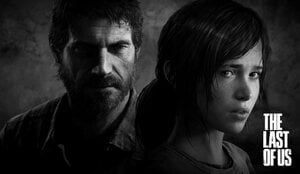
It’s been a strange E3. Word is that the industry is treading water until 2013, when Sony and Microsoft will almost certainly join Nintendo in unveiling their latest boxes. That anticipation for next year’s show has arguably sucked some of the enthusiasm out of this one, with publishers opting to promote in-between titles that are clearly designed to fill the shelves until it becomes viable to do something different again. But Sony’s decision to focus on brand new intellectual properties enforces its E3 messaging: that PlayStation is all about the gamers.
The Japanese company couldn’t have picked its corporate line any better this year. Maybe it had an inkling Microsoft’s focus would be elsewhere, or perhaps it took a gamble – regardless, its messaging set the publisher apart at this year’s event. “PlayStation is the platform for gamers,” SCEA’s Jack Tretton beamed during Sony’s pre-show press conference earlier in the week, and it supported that by rolling out a handful of new IP ideas.

Historically, new franchises are saved until the start of a generation. Industry rules dictate that it is more commercially viable to introduce fresh properties at the launch of a new console, rather than at the tail-end. But the generation’s life-span has been so elongated, that the commitment to those regulations has started to grate. Third-party titles such as Dead Space 3, Medal of Honor: Warfighter and Splinter Cell: Blacklist all looked exceptional – but there was an evident fatigue detracting from their debut. Even the likes of Resident Evil 6 and Sony’s own God of War: Ascension failed to impress to the degree that people expected. It’s not that the titles necessarily looked bad, it’s more that they felt familiar.
But while the introduction of new franchises was scarce, there was respite in a handful of titles. Sony itself backed up its commitment to the gamer by showing two blockbuster experiences set to arrive on PS3 before the end of the generation. Naughty Dog’s The Last of Us and Quantic Dream’s Beyond proved Sony’s willingness to innovate in the medium, even if the PS3’s prominence as the publisher’s primary platform is striding towards its end.

We’ve talked about the platform holder’s recognition of innovation and creative risks before. Back at GDC, we explained that technology demonstrations such as Kara and downloadable titles like Journey would not exist on other platforms. And it’s true. Sony’s often a bit hasty throwing around its “only on PlayStation” messaging, but what it means when it applies that phrase to products such as Beyond, is that no other publisher would be likely to have the guts to fund them. Speaking about PlayStation Vita earlier this week, Worldwide Studios president Shuhei Yoshida said that sometimes Sony works with indie developers for the “love of it”. While we’re sure that’s a half-truth, you get the feeling that products such as The Unfinished Swan and The Last Guardian are designed around driving the industry artistically as much as they are financial gain.
And many evidently want that innovation. Sony is clearly talking to the most committed of gamers when it introduces new worlds and franchises, but that’s what makes PlayStation such an exciting brand. There’s no doubt that the publisher enjoys the success of sequels as much as any other company, but as a platform holder it also recognises that it needs to take risks, and it sees the benefit in trying. Beyond might struggle to match the commercial success of Call of Duty, but its value to the platform and, pivotally, to a specific demographic of gamers, is priceless.





Comments 10
yup need more of those new IPs
this is a sony site so i can forgive the generalizations
@stealth I would be eager to get your feedback on that. In what way do you think the article made "generalisations"? What do you disagree with? Let's have a discussion.
tell me, how was spending 20 minutes on harry potter wand casual time a love letter at E3 to the core?
That's why I still prefer Sony. They fund new games, and say "we're spending money on something we think you may like."
In contrast, as we've seen with Kinect, Microsoft's approach seems to be, "we've spent a lot of money on this, you WILL like it."
As for the Wii-U - I'm sure it'll do well as they'll roll out the same tired old games as the last several decades, with the only noticeable change being a "U" added to the end of the title, and the fans will lap them up regardless.
@stealth How about you tell me how it detracts from two big budget new IP? I've already talked about Wonderbook elsewhere on the website. But regardless of our opinions on that game, does its existence really lessen the impact of other unrelated titles? Are you saying Sony's line-up would be better if it was exactly the same without Wonderbook? I'm not seeing your point.
It's a great time to be a PS3 owner...
I still think it's impressive that even if they didn't show Wonderbook in their E3 presentation, they still couldn't have adequately shown off all the games they've got coming to their platforms.
This is 100% right. Sony are the only of the big three who seem to know what core gamers want (for the most part anyway). I think they've got some things dead wrong lately, especially with Vita, but it could be worse: they could be Microsoft or Nintendo.
@stealth just cause u don't like one thing shown, doesn't mean it doesn't appeal to someone else
I like all the new franchises, but the last of us looks the most interesting so far.
Tap here to load 10 comments
Leave A Comment
Hold on there, you need to login to post a comment...